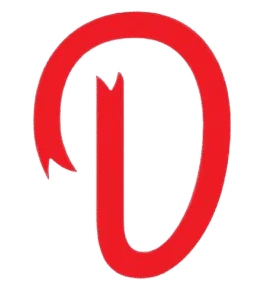Navigating the Unsettling Symbolism of Death in Your Dreams
Waking up from a dream in which someone you know has died can be a profoundly disturbing and emotionally jarring experience. The feelings of grief, fear, and confusion can feel incredibly real, often lingering long after you’ve realized it was only a dream. It’s a natural human response to wonder if such a vivid and powerful dream holds a deeper meaning, or even if it’s a premonition.
The first thing to understand is that dreams about death are almost never literal predictions of the future. Instead, they are one of the most common and potent ways our subconscious mind communicates with us about significant changes, endings, and transformations happening within us and in our lives.
Death, in the landscape of our dreams, is a powerful metaphor. It represents the end of one thing to make way for the beginning of another. This could be the end of a job, a relationship, a particular phase of life, or even an old belief system or aspect of your own personality. The person who dies in the dream often symbolizes the qualities or concepts associated with that ending.
While these dreams can be frightening, they offer a unique and valuable opportunity for introspection. By exploring the symbolic language of your dream, you can gain a deeper understanding of the transitions you are navigating in your waking life. This article will guide you through the various interpretations of dreaming about someone dying, helping you to decode the message and find meaning in the midst of the unsettling imagery.

The Psychology of Death Dreams: A Metaphor for Change and Endings
From a psychological perspective, dreaming about death is a classic and powerful symbol for an ending or a significant transition. Our minds often use dramatic imagery to process events and emotions that are difficult to confront directly. Death, as the ultimate finality, becomes the perfect metaphor for the end of a chapter in our lives.
This “death” is not physical but symbolic. It could represent the conclusion of a major project you’ve been working on, your graduation from school, the end of a romantic relationship, or a decision to leave a long-term job. The dream is your psyche’s way of acknowledging that a part of your life is over, and it’s grappling with the emotions that come with that closure.
The specific person who dies in the dream is a crucial piece of the puzzle. Often, that person represents a particular quality or aspect of your own life or personality. For instance, if you dream about a parent dying, it may not be about your actual parent’s mortality. Instead, it could symbolize your own transition into greater independence and the “death” of your role as a dependent child.
You might be shedding old patterns of reliance and stepping into a more self-sufficient version of yourself. Similarly, dreaming of a friend’s death might symbolize a change in that friendship or, more likely, the end of a particular characteristic within yourself that you associate with that friend. If that friend is the life of the party, their death in your dream could signify that you are leaving behind a more extroverted, party-focused phase of your own life.
The emotional tone of the dream is also a key indicator of its meaning. Did you feel immense grief and sadness, or was there a surprising sense of relief or peace? Your emotional response in the dream mirrors your true, perhaps subconscious, feelings about the change that is occurring. Intense grief can suggest that you are struggling to let go of the past and are finding the transition difficult.
On the other hand, feeling a sense of calm might indicate that you are ready for this ending and view it as a necessary step for your own growth. Recurring dreams about death often point to a significant life change that you are either resisting or having trouble processing. Your subconscious is repeatedly bringing the issue to your attention, urging you to confront the ending so you can move forward.
Decoding the Dream: Who Died and What It Represents
The identity of the person who dies in your dream provides the most specific clues to its meaning. Each person in our lives holds a unique symbolic role, and their “death” in a dream points to a specific area of our life that is undergoing transformation. Understanding these roles is key to accurately interpreting the message from your subconscious.
Dreaming of a parent dying is one of the most common and emotionally charged versions of this dream. If you dream of your mother’s death, it could symbolize a change in your relationship with nurturing, comfort, or your own maternal instincts. It might signify that you are becoming more self-nurturing and less reliant on external sources for comfort.
Dreaming of your father’s death often relates to themes of authority, protection, and structure. This dream could indicate that you are developing your own inner authority, making your own rules, and no longer looking for outside approval or protection. In both cases, the dream frequently marks a significant step into adulthood and self-reliance.
When you dream about a partner or spouse dying, it can be particularly terrifying, but it rarely signals a threat to their life. More often, it reflects a profound shift within your relationship. It might mean that the way you once related to each other is “dying,” making way for a new dynamic. Perhaps you are moving from a passionate, early phase to a more stable, long-term partnership.
It can also highlight your own fears of abandonment or your feelings of dependency on your partner. On a deeper level, your partner in a dream can represent your own masculine or feminine qualities (animus or anima in Jungian psychology), and their death could symbolize a significant change in how you integrate these aspects of your personality.
Dreaming about a child dying is arguably the most distressing of all death dreams. For a parent, this dream often reflects anxieties about their child’s well-being and the natural, yet painful, process of watching them grow up and become more independent. The “death” can symbolize the end of a specific stage of their childhood—the end of infancy as they start to walk, or the end of their time at home as they leave for college.
This dream acknowledges the loss inherent in a child’s growth. If you are not a parent, a child in a dream can symbolize a creative project, a new idea, or a vulnerable part of yourself. In this context, their death might represent a project that has come to an end, a creative block, or the “death” of your own innocence and naivety.
Finally, dreaming of your own death is a profound and powerful experience. This is the ultimate symbol of transformation. It signifies the end of your old self and the birth of a new you. You might be undergoing a major personal overhaul, letting go of old identities, shedding bad habits, and embracing a completely new way of being. While it sounds frightening, dreaming of your own death is often a very positive sign of personal growth, healing, and rebirth.
Common Scenarios and Their Nuanced Meanings
The way in which a death occurs in your dream adds another layer of detail to its interpretation. The circumstances surrounding the death can reveal a great deal about how you are experiencing the corresponding change in your waking life. It’s not just who died, but how they died that completes the story your subconscious is telling you.
If the death in your dream is peaceful and calm, it often suggests that you have come to terms with the ending it represents. This is a transition that you see as natural, necessary, and perhaps even welcome. It reflects a sense of acceptance and readiness to move on to the next phase of your life. You may be ending a job you’ve outgrown or moving on from a relationship that has run its course, and you feel at peace with the decision. The dream validates these feelings, assuring you that this is a gentle and positive step in your personal evolution.
In stark contrast, a violent or sudden death, such as a murder or a car accident, points to a change in your life that feels abrupt, forced, or traumatic. You may feel that this ending was not your choice, or that it happened before you were ready.
This could be related to an unexpected layoff, a sudden breakup, or a betrayal that has brought a situation to a screeching halt. A dream of murder, in particular, can signify feelings of anger and resentment. You might feel that someone has “killed” a part of you, an opportunity, or a relationship. It can also point to self-sabotage, where a part of you is “killing off” another part’s potential.
The specific cause of death also carries symbolic weight. Drowning, for example, is a classic dream symbol for being overwhelmed by emotions. If someone drowns in your dream, it may suggest that the ending you are experiencing is accompanied by a flood of sadness, grief, or anxiety that you feel you are sinking into. Attending a funeral in a dream is another common scenario, and it directly relates to the process of seeking closure.
The atmosphere of the funeral is telling. A somber, sad funeral reflects your grief and difficulty in letting go. A surprisingly cheerful or celebratory funeral, however, might indicate that you are happy to see this chapter of your life come to a close. Paying attention to these details can transform a general interpretation into a highly personal and insightful message.
Spiritual and Cultural Perspectives on Dreams of Death
While psychology offers a framework for understanding death dreams as metaphors for change, spiritual and cultural traditions provide a different and often complementary lens. In many spiritual belief systems, death is not seen as an end but as a transition to another state of being. This perspective is mirrored in the spiritual interpretation of death dreams, where they are often viewed as incredibly positive signs of rebirth and spiritual awakening. The “death” in the dream represents the death of the ego or the false self, allowing for the emergence of a more authentic, spiritually connected self.
This concept of ego death is central to many mystical traditions. It’s the process of letting go of the attachments, identities, and fears that limit our spiritual growth. A dream of your own death, from this viewpoint, can be a powerful and auspicious sign that you are undergoing a profound spiritual transformation. You are shedding layers of your old personality to connect with a deeper, more essential part of your being. This is not a frightening ending but a liberation—a release from the constraints of the ego into a more expansive state of consciousness.
Some people experience what are often called “visitation dreams,” where a loved one who has already passed away appears. These dreams are typically distinct from the symbolic death dreams discussed earlier. They often feel incredibly real, vivid, and peaceful, and the dreamer wakes up with a feeling of comfort and connection.
Many interpret these dreams as a genuine communication or visit from the deceased, offering reassurance, love, or a final goodbye. While science cannot prove or disprove the nature of these experiences, their emotional impact is undeniable, providing solace and a sense of continued connection for those who are grieving. It’s important to differentiate these comforting dreams from the more symbolic and often anxiety-provoking dreams where death represents an internal change.
It is also worth noting that some cultures and older dream dictionaries do interpret dreams of death as negative omens. However, these interpretations are becoming less common as our understanding of dream psychology grows. The overwhelming consensus among modern dream analysts is that these dreams are about the dreamer’s internal world, not external events. They are a reflection of your own life’s cycles of endings and beginnings, a deeply personal narrative of loss and renewal.
When Death Dreams Become Nightmares: Coping with the Anxiety
Regardless of the symbolic meaning, waking up from a dream about someone dying can be deeply distressing. The raw emotion of the dream can feel just as real as any waking experience, leaving you with a lingering sense of anxiety, sadness, or fear throughout your day. It is essential to have healthy coping strategies to process these powerful dreams and alleviate the emotional distress they can cause.
The first and most important step is to consciously remind yourself that the dream is not a prophecy. The fear that the dream might come true is often the biggest source of anxiety. Verbally affirming, “It was just a dream; it is not real,” can help ground you in reality and separate the dream’s symbolism from your waking life.
Once you’ve calmed your initial fear, you can begin to explore the dream’s message. Keeping a dream journal is an excellent tool for this. Write down every detail you can remember—who died, how it happened, where you were, and most importantly, how you felt. The act of writing it down can be cathartic and can help you to see the dream more objectively as a story with symbolic elements.
Once you have the details on paper, engage in self-reflection. Ask yourself the key question: “What is ending or changing in my life right now?” Consider all areas—your career, relationships, beliefs, and personal identity. The answer may not be immediately obvious, but by honestly assessing your current life situation, you can often find a direct correlation to the dream’s theme of an ending.
Understanding the dream’s symbolic connection to your life is the most effective way to neutralize its frightening power. When you realize the dream is about you letting go of an old habit, not about your loved one being in danger, the anxiety significantly subsides.
If these dreams are recurring and causing you significant emotional distress or disrupting your sleep, it might be a sign of a deeper underlying anxiety that needs to be addressed. In such cases, talking to a therapist or counselor can be incredibly helpful. A professional can help you explore the root causes of your stress and provide you with tools to manage your anxiety, which can, in turn, reduce the frequency of these nightmares. Remember, these dreams are a message. By learning to listen to and understand the message, you can transform a source of fear into a valuable guide for your personal journey.
Conclusion
Dreams about someone dying are among the most powerful and unsettling experiences our subconscious can create. They tap into our deepest fears of loss and mortality, leaving a lasting emotional impact. However, by looking beyond the frightening surface, we can discover a profound and meaningful message about our own lives. These dreams are not omens to be feared but symbols to be understood.
They are the language of change, signaling the end of a chapter and the dawn of a new one. Whether it’s the death of an old identity, the end of a relationship, or a transition in your career, these dreams are your mind’s way of processing the complex emotions that accompany every major life transition. They are a testament to the constant cycle of endings and beginnings that defines our journey of growth.
The next time you are visited by such a dream, take a deep breath. Remind yourself that it is a symbolic story, not a literal prediction. Use it as a prompt for introspection. Ask what part of your life is ready for renewal, what old skin you are ready to shed. By embracing the dream’s message, you can transform fear into awareness and navigate the inevitable changes of life with greater wisdom and grace.
FAQ
What does it mean to dream about someone dying?
Dreaming about someone dying is typically not a literal prediction. It is a powerful symbol that represents a significant ending, change, or transition in your life. The person who dies often symbolizes an aspect of yourself or your life that is changing.
Is dreaming about death a bad sign or an omen?
No, in modern dream interpretation, dreams about death are rarely considered a bad omen. They are viewed as symbolic messages from your subconscious about endings and rebirth, which are natural parts of personal growth.
What does it mean if I dream of my own death?
Dreaming of your own death is a very powerful symbol of profound personal transformation. It signifies the “death” of your old self—old habits, beliefs, or identities—and the beginning of a new chapter in your life. It is often seen as a positive sign of growth.
Why do I keep having dreams about someone dying?
Recurring dreams about death often indicate that you are in the midst of a significant life change that you are either resisting or having difficulty processing. Your subconscious is repeatedly bringing the issue to your attention so you can consciously address it.
Does this dream mean the person is actually in danger?
It is extremely rare for a dream of death to be a literal premonition. These dreams are overwhelmingly symbolic and reflect your own internal state, anxieties, and the changes you are experiencing, not an external threat to the person in the dream.

I’m Marisa Silva—an intuitive dream researcher fascinated by the symbolic power each dream image can carry.
Since I was little, I’ve realized that dreams are much more than simple nocturnal memories: they are messages from the unconscious, signs from the universe, and reflections of our soul.
At deepdreamss.com, I share interpretations, reflections, and guidance so you can decipher your own dreams and reconnect with your inner wisdom.






